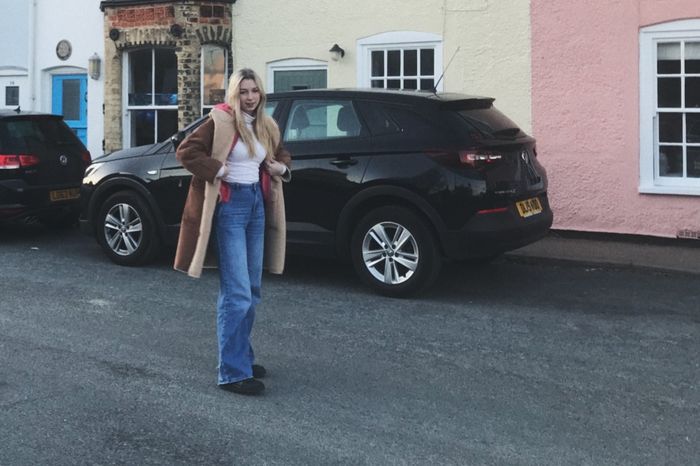The power of female friendships and fashion
Ava Connors argues fashion is a uniting force, and examines the beauty of solidarity among women

Throughout my (very humanities dominated) studies, the female figure is one I have studied intensely and often with some heartache. Historically and in popular culture, women are presented with the expectation of being ‘nurturing’, yet face the accusation of being inherently ‘backstabbing’. And we do not just encounter this individually; female friendships especially have long been perceived as toxic and dramatic in comparison to male friendships. But what is often left unsaid is the power of having these friendships and supportive relationships with other women. Women have been fundamental in uplifting and supporting my interest in fashion – one that is typically undermined in a patriarchal context. Coming to university, I have learned that no one will compliment you like a female friend – and, more than this, no one will compliment you more kindly than a drunk woman on a night out. While, of course, all genders can and do make contributions to fashion in friendships, I say female friendship particularly given the stereotypes that are often placed on women exclusively.
“No one will compliment you more kindly than a drunk woman on a night out”
Sexism permeates all hobbies and industries, including fashion, with its female-dominated nature providing a unique opportunity to pit women against each other. To borrow Butler’s term (Sociology students I know you know), performing gender is a crucial way in which this competition is fostered; for example, beauty work on the body, face, make-up, and clothing allows us to prescribe to the norms of hegemonic femininity. The influence of fashion and aesthetics on girls starts early, performing this idealized femininity “successfully” allows young girls to climb to the top of the popularity ladder at school. We see that the more feminine an individual appears, the inherently more favourable and desirable they are viewed – a trend that follows girls into womanhood. But, of course, it is a double-edged sword. Performing femininity may gain affirmation from other girls and attention from boys but as these girls enter spaces like academia and the workforce, their glamorised appearance becomes ‘ditsy’ or ‘self-absorbed’. The tough pill to swallow is that women can never win when it comes to beauty and dressing.
For that reason, in the world of fashion is it important to not only remove yourself as much as you can from constant comparison but also to find and create solidarity with women. While fashion can be mechanised to divide women, it can also exist to be a bonding experience. Personally, sharing clothes is my platonic love language. I’m not alone in this, models Noa Indigo Blaaker and Irene Agustin, meeting as English-speaking girls at a French casting, combine their closet spaces in Paris to share items that compliment their different styles. In my own experience of female friendship, their jeans make my bop costumes better, their going out tops I frequent in Revs, and even their socks are put to use in very desperate times. In Cambridge especially, this can be truly magical; borrowing my friends’ dresses and getting ready for Formal together is the girlhood I’d been waiting for.
“To all the women I have taken inspiration from, thank you all for making my style drastically better”
Borrowing clothes is a great way of exploring your style, especially when you’re not sure if something is for you and don’t want to fork out just yet. It is also a practice of sustainable fashion. The relentless pressure of consumerism and our deep-seated fears of being left behind are constantly manipulated by advertising – particularly in a time of cheap and quick purchasing like TikTok Shop. The reality of this is purchasing clothes we ultimately don’t want and don’t wear - please see my large Vinted wardrobe for exhibit A. But, alas, I am learning that borrowing from my friends, especially if it is for a one-off event, can save me from over-consuming and save my bank account. And it is not just the clothing I frequently steal, but the inspiration I get from other women that I treasure. My friends, sisters, mum, and female colleagues have all influenced and inspired my personal style.
Coming to university, I have enjoyed every aspect of girlhood dearly – bonding through fashion is just one of the many that has stood out to me. To all the women I have taken inspiration from, thank you all for making my style drastically better (it was needed), and thank you for showing me the joy of female solidarity. May a love like this find everyone.
Want to share your thoughts on this article? Send us a letter to letters@varsity.co.uk or by using this form
 News / Cambridge student numbers fall amid nationwide decline14 April 2025
News / Cambridge student numbers fall amid nationwide decline14 April 2025 News / Greenwich House occupiers miss deadline to respond to University legal action15 April 2025
News / Greenwich House occupiers miss deadline to respond to University legal action15 April 2025 Comment / The Cambridge workload prioritises quantity over quality 16 April 2025
Comment / The Cambridge workload prioritises quantity over quality 16 April 2025 Sport / Cambridge celebrate clean sweep at Boat Race 202514 April 2025
Sport / Cambridge celebrate clean sweep at Boat Race 202514 April 2025 Features / The TikTok college: using social media in access and outreach15 April 2025
Features / The TikTok college: using social media in access and outreach15 April 2025






